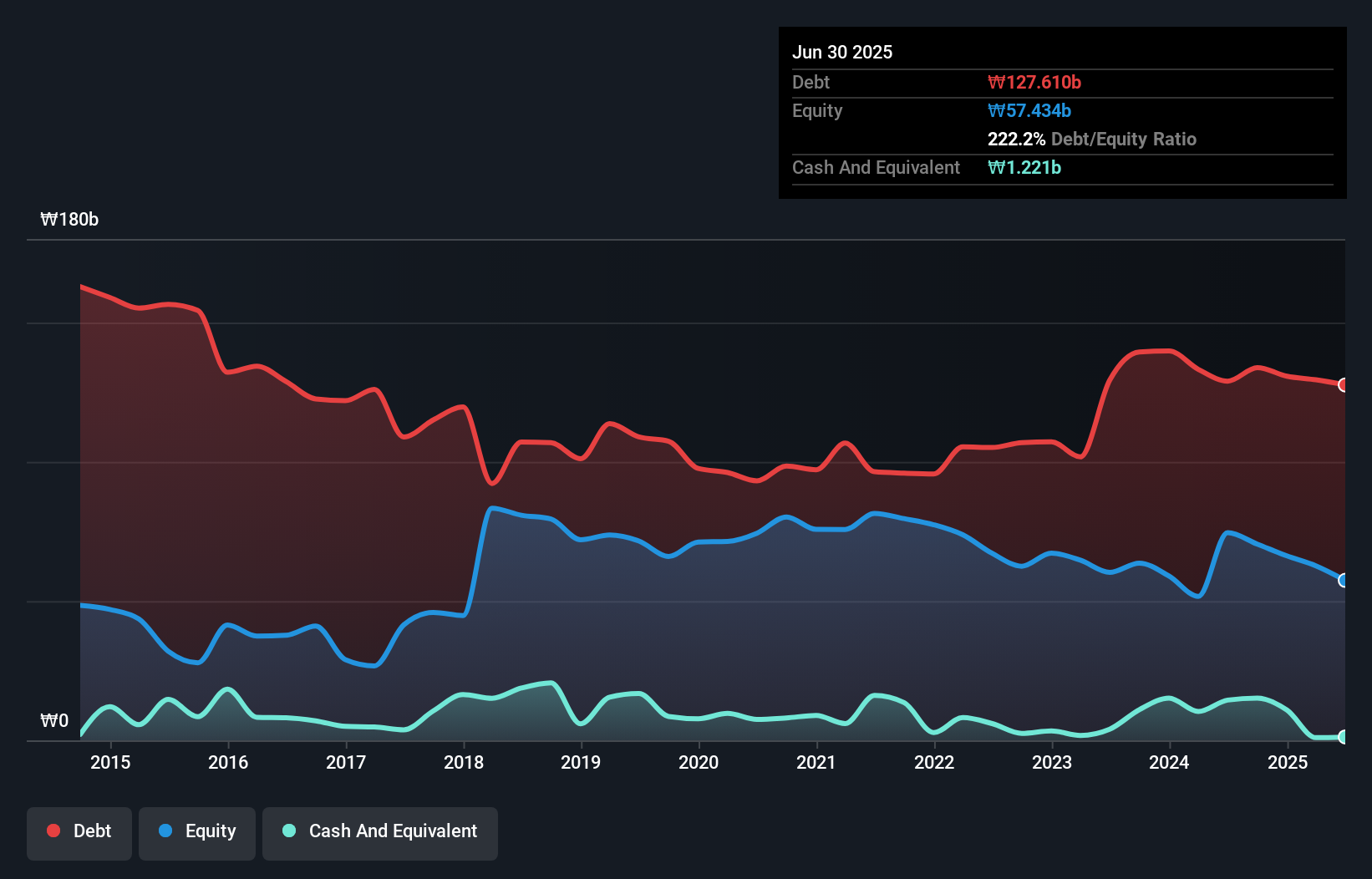- South Korea
- /
- Electrical
- /
- KOSDAQ:A018000
Health Check: How Prudently Does Unison (KOSDAQ:018000) Use Debt?
Some say volatility, rather than debt, is the best way to think about risk as an investor, but Warren Buffett famously said that 'Volatility is far from synonymous with risk.' So it might be obvious that you need to consider debt, when you think about how risky any given stock is, because too much debt can sink a company. We can see that Unison Co., Ltd. (KOSDAQ:018000) does use debt in its business. But is this debt a concern to shareholders?
Why Does Debt Bring Risk?
Debt and other liabilities become risky for a business when it cannot easily fulfill those obligations, either with free cash flow or by raising capital at an attractive price. Ultimately, if the company can't fulfill its legal obligations to repay debt, shareholders could walk away with nothing. While that is not too common, we often do see indebted companies permanently diluting shareholders because lenders force them to raise capital at a distressed price. Having said that, the most common situation is where a company manages its debt reasonably well - and to its own advantage. The first thing to do when considering how much debt a business uses is to look at its cash and debt together.
How Much Debt Does Unison Carry?
The chart below, which you can click on for greater detail, shows that Unison had ₩127.6b in debt in June 2025; about the same as the year before. Net debt is about the same, since the it doesn't have much cash.

How Healthy Is Unison's Balance Sheet?
The latest balance sheet data shows that Unison had liabilities of ₩169.5b due within a year, and liabilities of ₩22.0b falling due after that. Offsetting these obligations, it had cash of ₩1.22b as well as receivables valued at ₩20.0 due within 12 months. So its liabilities outweigh the sum of its cash and (near-term) receivables by ₩190.3b.
Given this deficit is actually higher than the company's market capitalization of ₩164.4b, we think shareholders really should watch Unison's debt levels, like a parent watching their child ride a bike for the first time. Hypothetically, extremely heavy dilution would be required if the company were forced to pay down its liabilities by raising capital at the current share price. The balance sheet is clearly the area to focus on when you are analysing debt. But it is Unison's earnings that will influence how the balance sheet holds up in the future. So when considering debt, it's definitely worth looking at the earnings trend. Click here for an interactive snapshot.
Check out our latest analysis for Unison
In the last year Unison had a loss before interest and tax, and actually shrunk its revenue by 52%, to ₩34b. That makes us nervous, to say the least.
Caveat Emptor
While Unison's falling revenue is about as heartwarming as a wet blanket, arguably its earnings before interest and tax (EBIT) loss is even less appealing. Indeed, it lost ₩16b at the EBIT level. Considering that alongside the liabilities mentioned above make us nervous about the company. We'd want to see some strong near-term improvements before getting too interested in the stock. Not least because it burned through ₩8.0b in negative free cash flow over the last year. So suffice it to say we consider the stock to be risky. The balance sheet is clearly the area to focus on when you are analysing debt. However, not all investment risk resides within the balance sheet - far from it. We've identified 3 warning signs with Unison , and understanding them should be part of your investment process.
At the end of the day, it's often better to focus on companies that are free from net debt. You can access our special list of such companies (all with a track record of profit growth). It's free.
New: AI Stock Screener & Alerts
Our new AI Stock Screener scans the market every day to uncover opportunities.
• Dividend Powerhouses (3%+ Yield)
• Undervalued Small Caps with Insider Buying
• High growth Tech and AI Companies
Or build your own from over 50 metrics.
Have feedback on this article? Concerned about the content? Get in touch with us directly. Alternatively, email editorial-team (at) simplywallst.com.
This article by Simply Wall St is general in nature. We provide commentary based on historical data and analyst forecasts only using an unbiased methodology and our articles are not intended to be financial advice. It does not constitute a recommendation to buy or sell any stock, and does not take account of your objectives, or your financial situation. We aim to bring you long-term focused analysis driven by fundamental data. Note that our analysis may not factor in the latest price-sensitive company announcements or qualitative material. Simply Wall St has no position in any stocks mentioned.
About KOSDAQ:A018000
Unison
Engages in the manufacture, sale, and installation of wind power generation systems and towers in South Korea and internationally.
Mediocre balance sheet with low risk.
Market Insights
Community Narratives



